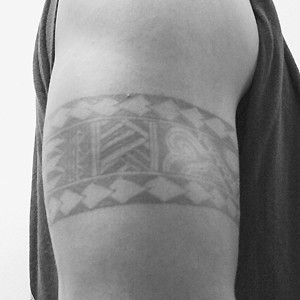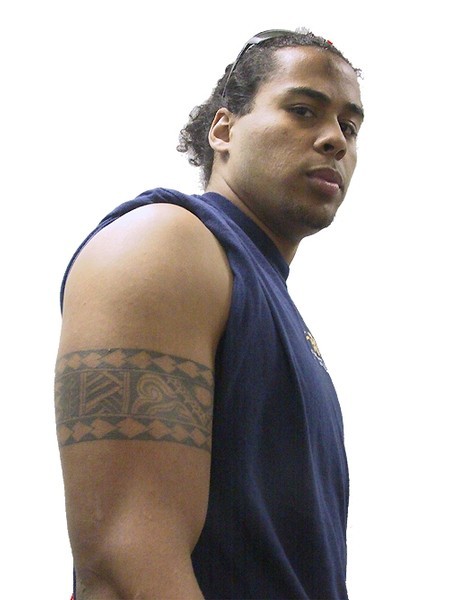
Player draws on culture
Mustang defensive end Don Ieremia-Stansbury grew up in an ElPaso ghetto known for its teen juvenile delinquent crime and commondrive-by shootings. Raised single-handedly by his Somoan mother,Stansbury has strived to live in the Samoan “aloha”spirit, promoting a happy, positive outlook on life.
Stansbury’s friends say he radiates this”aloha” spirit.
“He always has a smile on his face. He speaks to everybodyhe passes whether he knows them or not. You wouldn’t know ifhe was having a bad day unless he told you because he is such ahappy go-lucky guy,” teammate Reggie Gilford said.
Stansbury has more than just a couple close friends since he isliked by so many individuals around campus. He portrays hiseasy-going free spirit all the time.
“He is the only person I know who can wear a skirt on gameday and get away with it,” Wesley Medlock, a senior widereceiver said.
Active in Fellowship of Christian Athletes and other campusorganizations, Stansbury’s friends say he is in the processof leaving his mark at SMU as an outstanding athlete.
In addition, he works hard as a student scholar, double majoringin economics and markets and cultures on a full scholarship.
Stansbury attributes his dedication to working hard to hisSamoan heritage.
He learned a great deal from his mother, Seta, who grew up inAmerican Samoa as the bishop’s daughter of thecountry’s Mormon Church. According to Stansbury, she was thefirst person in her family to strike out on her own. When she was16-years-old she left Samoa to move to Hawaii where she received adegree from Brigham Young University-Hawaii.
Though her life was not easy, his mother said she provided asolid background for her children. Working two jobs to make endsmeet, he remembers days when his mother would leave at 6 a.m. andget home as late as 11 p.m. Yet, his mother was still able toinfluence her sons.
“She took ownership and showed us the right path,”Stansbury said.
“I always knew what they were doing in school,” hismother said. “They had rules set up, schedules to follow.When they got out of extracurricular activities, they did homework,ate dinner and maybe watched a little television.”
The differences in American and Samoan lifestyles challenged thefamily.
His mother struggled to retain the religion and rituals of Samoain a culture a far cry from the simple, frugal way of life she hadgrown up knowing.
In an effort to maintain a connection with their heritage,Stansbury and his two older brothers got a tattoo — aphysical representation of their family and culture — when hewent away to college. Stansbury’s tattoo is an armband witharrowheads designed in his unique pattern.
“My brothers and I have always acted a certain way, but Inever knew why. It’s just the ‘aloha’ spirit— that’s just the way we live our life,”Stansbury said. “[It’s a] laid-back mentality, so thatno matter what happens everything is going to be allright.”
Stansbury said he is not a typical football player because hehas two older brothers to emulate, both of whom played football atDivision I schools. Edmund now plays for the Houston Texans and theBerlin Thunder.
Believing he was not as athletically blessed as his brothers,Stansbury used his free time to increase his athletic ability byplaying high school sports and working out, sometimes at theexpense of his social life.
“As the youngest of three boys, I was always in their [hisbrothers’] shadow,” Stansbury said. “There was somuch pressure to be like them [athletically].”
Stansbury said that the Samoans believe in always treatingeveryone as if they were your best friend and used the footballgame against Hawaii as an example. He said the Samoan players onthe Hawaiian team were friendly despite the fact they were playingon the opposite side of the ball.
Though he has never visited Samoa, Stansbury feels it has beensuch in integral part of is life — its almost like he haslived there his whole life.
He hopes to visit where his mother was raised and fullyunderstand the reason she felt it so important to instill thetraditional values of the island in her sons.
“I know when I go there it’ll feel like home,”Stansbury said.

Player draws on culture











